
KAMPALA - China's entry into Africa's pharmaceutical industry is causing competition and discontent among industry players especially those from the West, with the latter accusing the former of shipping "fake" medication to the continent.
Policy makers, pharmacists, distributors and suppliers in Uganda, however, refuted the allegations, noting that they arise from the cut-throat competition that China brings into the lucrative industry in Africa and are designed to tarnish Chinese anti-malarial medicines.
Some Western media outlets have recently hatched out a multitude of much-hyped reports against Chinese medications. The volley of attacks started when British newspaper The Guardian alleged late December that one third of the fake anti-malaria drugs in Uganda and Tanzania have origins in China and India.
However, Kate Kikule, chief drug inspector at the National Drug Authority (NDA), told Xinhua in an interview on Wednesday that no comprehensive survey has been conducted so far to investigate how many anti-malarial products are fake and are from China.
"The studies we have conducted show that there are some substandard products but not necessarily that they are all from China," she said.
Kong Dongsheng, Managing Director of Sino Africa Medicines and Health Limited, a supplier of the Chinese anti-malarial drug Duo-Cotexin, told Xinhua earlier this month that China is a new entrant into Uganda's anti-malarial drug industry with a not more than 10 percent market share.
He said the allegations against China was politically-motivated and must not be tolerated.
He said the Ugandan government and the National Drug Authority (NDA) should be trusted as it has a stringent code on licensing a company to distribute medicines in the East African country.
Even if there are fake medicines in Uganda, there are not as many as the report indicated, he added.
Stephen Kyebambe, a senior consultant physician at China-Naguru Friendship Hospital in the capital Kampala, told Xinhua that an increasing number of patients prefer cheap but effective drugs manufactured in China or India than those made in the West.
"The reality is when you look at our medicines, they are bought from India or China. Certainly, drugs from the United Kingdom are more expensive. The issue of affordability exists and that is a fact," he said.
Kyebambe also noted that the fake drugs labeled "Made in China" are not actually made in China.
Robert Mugabe, a pharmacy technician, argued that ordinary patients may not necessarily differentiate a genuine drug from a fake one.
Some patients do not follow prescriptions and just swallow, say, half the dose of the medicine, which can not completely kill the malaria parasites, he said.
Such a patient will complain that the medicine is fake and yet it is actually genuine medication abused by the patient, he said.
He said all drugs have side effects and that different patients react differently to different medication depending on their physical make-up.
Edward Kironde Naddumba, director of China-Uganda Friendship Hospital, echoed Mugabe.
"These drugs are of high quality and effective when it comes to treating malaria. The problem is that most patients self medicate. When people get signs of malaria, they self mediate. People need to get a malaria test before starting treatment," said Naddumba.
He also said the allegations that one third of the anti-malaria drugs come from China is not true due to lack of particular study.
"The statement lacks scientific evidence. NDA know all the drugs that come into the country, they test all the drugs," he said.
"China has played a very active role in helping the people of Uganda. China continues to show commitment to attending the deficiencies and equipments to run this hospital," he said.
Asuman Lukwago, permanent secretary of the Ministry of Health, described the allegations as mudslinger in the pharmaceutical industry.
"I think this is a campaign story, which I feel should not be taken too seriously," he said.
 'Cat model' to dazzle Shanghai auto show 2013
'Cat model' to dazzle Shanghai auto show 2013
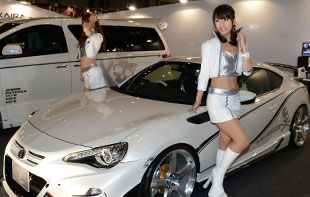 Models at Tokyo modified car show
Models at Tokyo modified car show
 Shanghai Fashion Week focuses on domestic brands
Shanghai Fashion Week focuses on domestic brands
 Angel-dress models at Shandong auto show
Angel-dress models at Shandong auto show
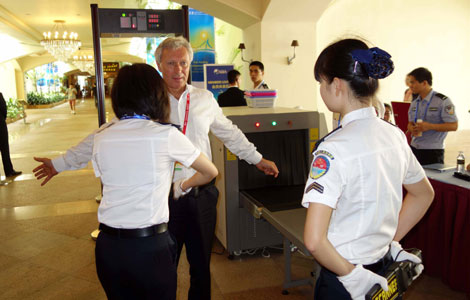 Safe and Sound
Safe and Sound
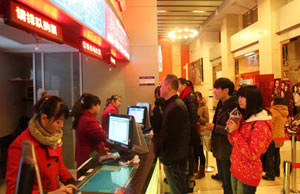 Theater firms scramble for managers
Theater firms scramble for managers
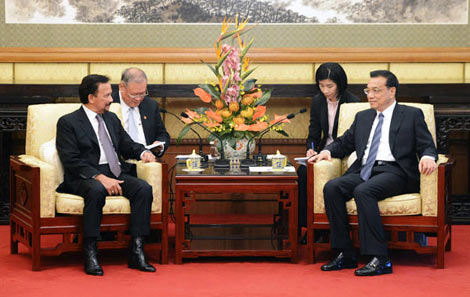 Premier pledges closer ties with Brunei
Premier pledges closer ties with Brunei
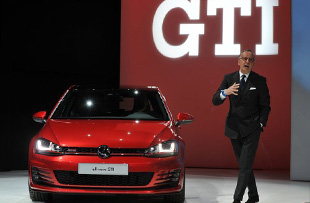 Volkswagen's all-new GTI at New York auto show
Volkswagen's all-new GTI at New York auto show